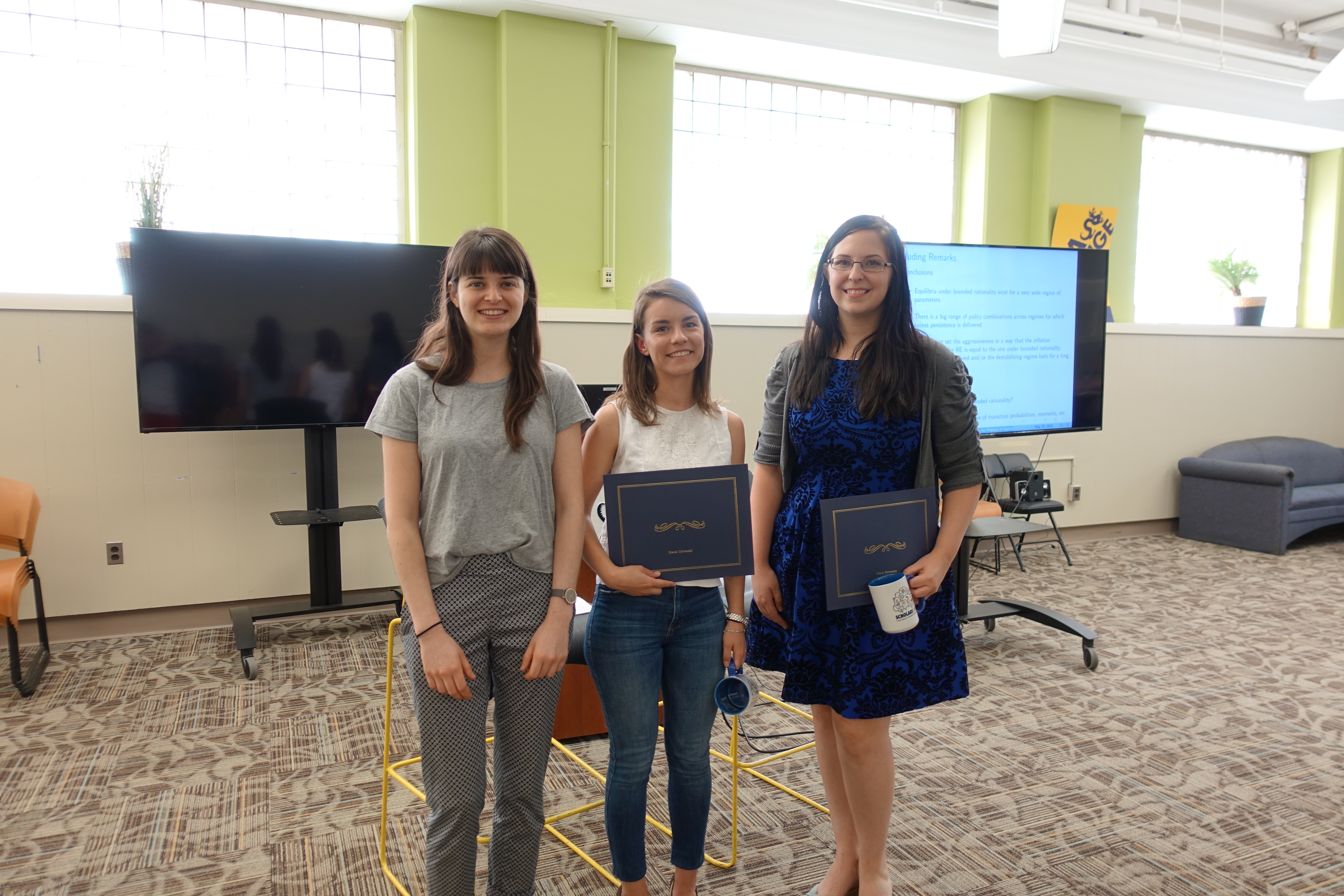Scholars Share: May 2018

The Graduate Student Association (GSA) and the Graduate College welcome the Drexel community to join us for Scholars Share (formerly Books & Bagels) on Friday, May 25, 2018 at 12:00PM in the Graduate Student Lounge in Main Building, Room 010A (Basement) to hear from current graduate students about their research endeavors and a faculty moderator who will facilitate questions and discussion from the audience. Lunch is provided.
Watch The Recording [YouTube]

Ina Hajdini
PhD in Economics
Department of Economics
LeBow College of Business
Monetary policy behavior in the presence of agents with bounded rationality under a policy regime switch
Summary: One of the strongest assumptions we impose in our macroeconomic models is full rationality of any economic agent, meaning that we are all assumed to have perfect knowledge about the underlying structure of the economy. However, this might be a utopian assumption to make. In my research, I allow agents to have a perception of the economy structure that is slightly different from the real one as long as what they perceive is confirmed by data. This idea is then applied in a monetary policy regime switching framework: for example, it is well-documented that when Miller was substituted as a Fed chair by Volcker, there was a dramatic change in the monetary ruling as well. Preliminary results show that macro variables exhibit excessive persistence as compared to a model where agents are fully knowledgeable of the economy. Such results might be able to explain the extended periods of deflation in Japan, or hyperinflationary episodes in the Latin American countries.
Identifying the type of agents in the economy is important to the policy makers, especially the central banks. The reason why, is that the implied dynamics of important macroeconomic variables, such as inflation or GDP, are highly dependent on the level of the agents’ rationality. Once the central authority understands that consumers and firms have bounded rationality, it can conduct policy in a way that the dynamics are not radically disrupted by the lack of rationality.

Virginia Price
PhD in Physics
Department of Physics
College of Arts and Sciences
Why do women study physics? An analysis of factors of women choosing to major in physics
Summary: It is a well-documented statistic that women are chronically underrepresented in the fields of physics and astronomy. One problem is the recruitment of women into STEM fields. If we can get a picture of what drives women to pursue degrees in physics, it can inform how we engage women in physics and other STEM fields. We examine a dataset collected from the 2015-2016 Conferences for Undergraduate Women in Physics (CUWiP). Attendees filled out a pre-conference survey including a question asking about the path and influences that led them to choose physics as a course of study. Preliminary results show a strong dependence on people, such as parents, teachers, and professors. Respondents also showed heavy biases towards interest in related STEM fields such as math or engineering.